T-SQL Tuesday this month sees Damien Jones (@amamzonwebshark) ask about our wishlist for OpenAI in the Microsoft space.
Normally I’d have spent a week thinking about the T-SQL Tuesday topic, given that the invitation is typically posted on the first Tuesday of the month. But this month I flew to Christchurch before the invitation was sent, and missed the invitation until a few minutes ago, and Tuesday UTC starts really soon!
But interestingly, the topic of AI came up in the keynote that I gave. It’s the kind of thing that fits nicely in keynote sessions, because it’s general and has the potential to impact everything.
There are so many places that AI can integrate with existing systems, and it’s already at the point where I could say “Hey ChatGPT, write me a blog post using the style of Rob Farley, about the potential integration between OpenAI and existing Microsoft applications such as Excel and SQL Server. The purpose should be persuade the audience of the benefits of AI. The target audience is technical experts.” The results of that is below.
I think the future is very suddenly very interesting with the potential to see change like never before. People have always been afraid that technology will take their jobs, and yet we see that unemployment is at record low levels. Some jobs have changed slightly, but other jobs have appeared to replace them. With AI hitting new levels, are we going to see copy writers become obsolete? I can pretty much automate the production of a quote for a client using AI – and it’s probably not far off when AI could do a lot of my work. When do we start being mentored by AI systems?
The little spots where AI will change things feel a lot like when spelling and grammar checks appeared in Word. For ages it’s been able to tell me I have too many commas in my text, or that I’m being a little wordy by putting the word “frustratingly” at the start of a sentence. Clippy was always saying “oh, it looks like you’re writing in this style, do you want me to help”, but now that an AI system can say “Oh, I’m just going to read Rob Farley’s blog to see what style of writing he uses”, before coming up with some content… yeah, that’s taking it to another level.
I’m going to lean towards the “I, for one, welcome our new AI overlords” sentiment in true Simpsons style, but with a nod to the fact that technology has never actually taken jobs or made people properly redundant. It might take over some of the things we do, but we still contribute in various ways. I’m going to trust that there will still be a place for people in the workforce, but the future is interesting.
I don’t know that I need a Word extension to let me choose to write in the style of, although there could be some use to it… maybe that’s on my wishlist, so that I can create copy that sounds like I’ve written it.
As for what it wrote for me when I asked… well, that’s below. I put the italics in. Everything else is untouched. Even the new lines. I repeat, these are NOT MY WORDS. I don’t necessarily agree with anything written below
OpenAI and Microsoft: A match made in heaven?
If you’re like me, you’ve probably heard of OpenAI, the research organization that aims to create artificial intelligence (AI) that can benefit humanity without being constrained by profit or power. You may have also seen some of their impressive demonstrations, such as GPT-3, a natural language processing system that can generate coherent text on almost any topic; DALL-E, a computer vision system that can create images from text descriptions; and Codex, a code generation system that can write programs from natural language instructions.
But what does OpenAI have to do with Microsoft? And more importantly, what does it have to do with you?
Well, as it turns out, OpenAI and Microsoft have a close partnership that goes beyond just funding and cloud computing. In fact, OpenAI is using Microsoft’s platforms and tools to develop and deploy their AI models, and Microsoft is integrating OpenAI’s capabilities into their existing applications and services. This means that you can leverage the power of OpenAI’s AI without having to learn new skills or switch to new tools.
Let me give you some examples.
Imagine you’re working on an Excel spreadsheet and you need to perform some complex calculations or data analysis. Instead of writing formulas or macros yourself, you could simply type in what you want to do in plain English and let Codex do the rest. For instance, you could type “create a pivot table showing the average sales by region” or “plot a scatter chart showing the correlation between customer satisfaction and product quality” and Codex would generate the appropriate code for you.
Or imagine you’re working on a SQL Server database and you need to optimize your queries or design your schema. Instead of spending hours tweaking indexes or normalizing tables yourself, you could simply ask Codex for advice or suggestions. For example, you could type “how can I improve the performance of this query?” or “what is the best way to store this data?” and Codex would give you feedback and recommendations.
Or imagine you’re creating a PowerPoint presentation and you need some visuals or content to make it more engaging. Instead of searching online for images or text yourself, you could simply use DALL-E or GPT-3 to generate them for you. For instance, you could type “show me an image of a cat wearing glasses” or “write me an introduction for this topic” and DALL-E or GPT-3 would produce them for you.
These are just some of the possibilities that OpenAI and Microsoft are working on together. By combining OpenAI’s cutting-edge AI research with Microsoft’s widely-used platforms and tools,
they are creating a new paradigm for how we interact with technology: one where we can express our intentions naturally
and let AI handle the details.
This is not only convenient but also empowering. It means that we can focus on our creativity
and problem-solving skills instead of getting bogged down by technicalities.
It means that we can access advanced AI capabilities without having
to be experts ourselves.
It means that we can unleash our full potential with technology as our ally.
So what do you think? Are you excited about the potential integration between OpenAI
and Microsoft? Do you have any ideas or questions about how it could benefit your work
or life? Let me know in the comments below!



